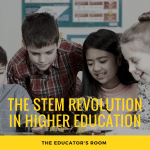Over the past few weeks, my students have made certain that I leave feeling valued and loved; they have thrown parties, brought treats, serenaded me with songs, given speeches, written encouraging notes, and presented me with heartfelt gifts. Teachers have commented that they have never seen students express their gratitude in these ways. We have shared tears. They have begged me to stay. The teacher who shares my room, left me a note asking, “What did you do to these kids to make them react this way?” That’s an article topic for another day. This one is for them.
To My Forever Students,
As I read the “What I Have Learned Book,” I am amazed by the amount of self-reflection. Some teenagers are incapable of acknowledging and articulating transformations, and furthermore, they are hesitant to publicly share. Don’t lose the ability to do so. As an adult, I must confess that I don’t thank people enough for shaping me.
Naturally, I made my list: What You (My Students) Taught Me.
1.) Be Fearless: A requirement of being a non-traditional teacher is to discover new territory and try unfamiliar pathways. For the first four years of my teaching career, I tried to mimic what I had observed. I fell into a cadence in some units: repeated the same activities each year with little variation. After witnessing another school’s classroom, I was inspired to completely change my craft. I wanted you to experience that joy. Preparing for my first Inquiry Unit was nerve wrecking: What if this fails? I didn’t want to let you down. When other teachers looked at me like I was foolish for putting forth so much effort preparing for this unit, I reminded myself that the past year’s unit wasn’t good enough for you. It wouldn’t inspire and challenge most of you. You wouldn’t fall in love with the book the way I had. Never give in to the fear of failure. If you do, you’ll be haunted by what could have been. Was the unit perfect? No. However, did I accomplish most of my objectives? Absolutely. You were engaged; you were intellectually stretched; you found the connection between a classic and present day. You extended your learning outside of the classroom by asking teachers, friends, and parents about their opinions. Other discipline teachers asked about our activities because they overheard heated discussions regarding the book. Sometimes you must step outside of your comfort zone to discover new rewards.
2.) Ask for Assistance/Opinions: Throughout my first four years of teaching, I rarely asked for student feedback because I couldn’t handle rejection. Honestly, I didn’t trust that you knew what was best for the classroom. One day I realized that I wasn’t walking the talk; I have always said that I am a teacher because of my students, but I wasn’t a student-centered teacher. First I asked a few of you (the polite ones) about opinions on future activities. Eventually, several of you approached me with ideas, and some of you stayed hours after school to brainstorm with me. And then one day I invited all of you to the discussion table (a fearless act). We may not have always agreed, but I believe we always compromised. The results were magical. Success is found when all parties are invested in the outcome. I encourage you to ask for help even if you don’t think you need it; sometimes a fresh pair of eyes will point out something you’ve never considered. And remember, just because you asked doesn’t mean you must follow through. Ultimately, you are in control of the task.
3.) Reflect: Building on the previous lesson, you reminded me to reassess during and after the process. Somewhere in my first four years of teaching, I forgot the value of this skill. While rushing through the year, reflection wasn’t a priority. “I can think about changes next year before I begin” is what I planned, but as you have probably guessed, I forgot to reevaluate prior to commencement. I had intentions to foster this skill in you, but by second semester, I sacrificed reflection activities for test preparation. Your book reminded me of its immense value; we will never reach our potential if we remain stagnant.
4.) Trust Yourself: Doubt has suffocated my fifth year of teaching. Truthfully, at one point I gave in to the demands of conformity because I thought it would less stressful. I saw your misery; I witnessed the fire extinguish in your eyes. Instead of fighting for my creative rights, I allowed an opinion to break me, and I sacrificed your learning experience. It is one of the greatest regrets of my teaching career. Fortunately, you encouraged me to find my voice again. After all, you are my audience and purpose. Being a stranger in my own classroom was never going to take us anywhere. Although the year didn’t end the way I hoped for, I am not wallowing in regret. When you face trials, remember yourself. Don’t allow someone to dictate your path. This is not to say that you shouldn’t try to expand yourself (see lesson one), however, you shouldn’t lose yourself while you explore. Voices and opinions will always bombard you, but yours needs to be the loudest. Never change solely because someone demands it.
5.) Do Good: Honestly, I learned this lesson from Mr. Feeny, but you have reinforced it. Think about where we started this year, and look at where we are now: We have explored nearly three hundred years of writings, beliefs, and cultures; we have listened to various claims and survived several arguments; we have learned to evaluate each other’s opinions; we have changed our minds; we have band together to overcome trials; we have discovered aspects of human nature; we have grown. The depths of our accomplishments can’t be evaluated by a test or a single observation. Keep your purpose at the forefront of your mind, and you’ll change the world.
It has been one hell of a year. I hope you will write your lessons on your heart the same way I will inscribe mine. Thank you for all that you have done; you’ll never understand what you mean to me. I am a better teacher because you changed me.







